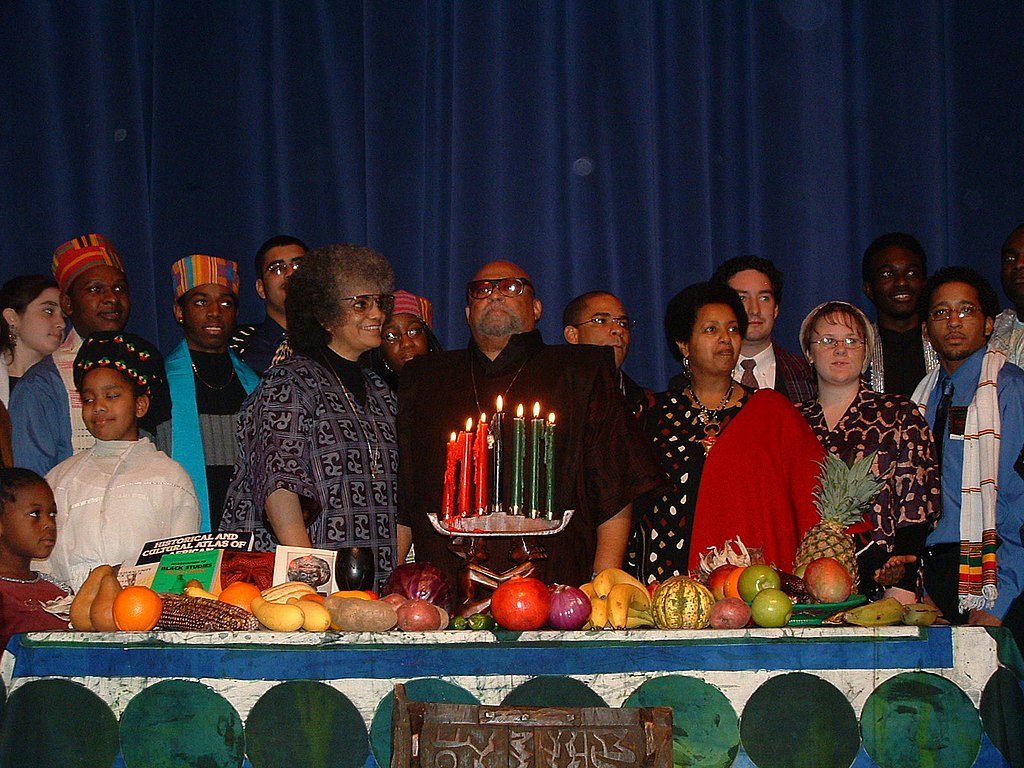|
Getting your Trinity Audio player ready...
|
Kwanzaa: The Founder
In 1966, Maulana Karenga, author, and activist who was involved with the Black Power movement in the 1960s and 1970s, founded Kwanzaa. His goal was to create the first Black holiday. He said he wanted to “give Blacks an alternative to the existing holiday to allow Blacks to celebrate themselves and history, rather than simply imitate the practice of the dominant society.”
The name Kwanzaa comes from a phrase of Swahili origin, “Matunda Ya Kwanza, and translates as “First Fruits of the Harvest.” The holiday is based on African agricultural rites and communal activities.



